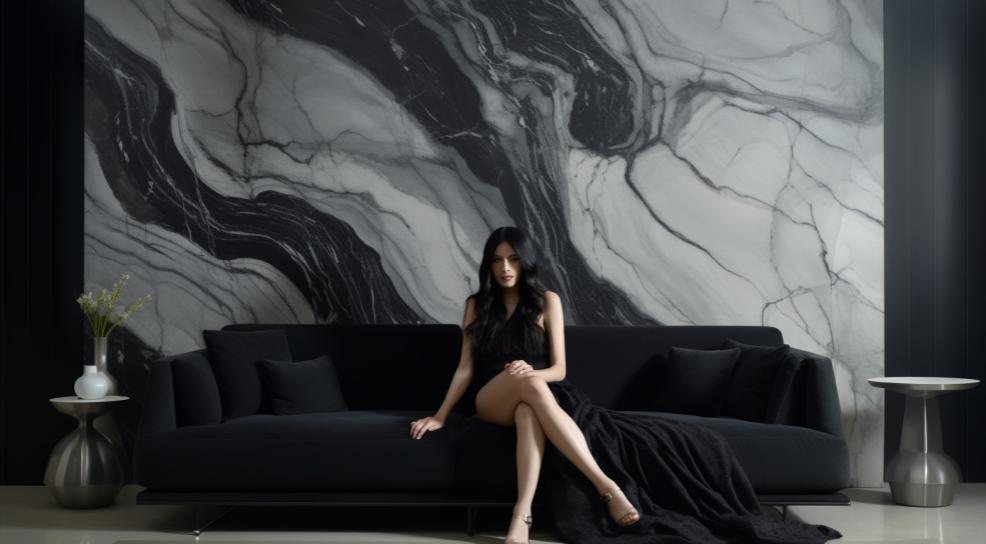The Health and Beauty of Minimalism

Minimalism: A Modern Marvel or an Age-Old Art?
Ah, minimalism. You may have encountered this enticing term plastered across lifestyle blogs, social media posts, and modern design magazines, or perhaps whispered by your trendy friend who has just embraced its principles in their home. The word itself lends an air of sophistication and simplicity, an irresistible allure that seems to awaken a deep-seated desire within us to declutter and simplify our lives. But what exactly is the art of minimalism, and how can we achieve it without sacrificing our sanity or spiraling into an existential crisis?The concept of minimalism is not a new one, despite its newfound popularity in today's world. In fact, it dates back to ancient times, when monks and mystics practiced an austere way of life, focusing on the cultivation of the spiritual self rather than material possessions. They understood that excessive belongings led to excessive attachment, and that this attachment was a major roadblock on the path to inner peace and enlightenment.
In our modern era, minimalism has been redefined and repackaged for the masses, adopting a sleek and chic aesthetic that appeals to our inner desire for order and harmony. But the underlying principles remain the same: by shedding the excess in our lives, we can achieve a sense of calm and clarity, allowing us to focus on what truly matters in life.
Health Benefits: Decluttering the Body and Mind
While it's no secret that a cluttered environment can lead to stress and anxiety, the health benefits of minimalism extend far beyond our mental state. By embracing a minimalist lifestyle, we can not only improve our mental well-being but also our physical health. Consider the following benefits:- Reduced stress: A clutter-free environment allows the mind to relax and focus, reducing the mental strain that can lead to chronic stress and its associated health risks.
- Better sleep: A minimalist bedroom encourages restful sleep by minimizing distractions and creating a tranquil atmosphere.
- Improved immune function: Studies have shown that cluttered environments can harbor harmful pathogens and allergens, while a clean and organized space promotes better air quality and overall health.
- Increased physical activity: A clutter-free home encourages movement and activity, preventing the sedentary lifestyle that can contribute to poor health.
Beauty in Simplicity: Minimalism and Personal Style
When it comes to personal style, minimalism can be a powerful instrument of self-expression. By stripping away the excess and embracing simplicity, we can create a chic and timeless aesthetic that transcends trends and fads.Consider your wardrobe. How many garments do you own that you haven't worn in the past year, and how much time do you spend sifting through piles of clothes each morning to find the perfect outfit? By adopting a minimalist approach to your wardrobe, you can streamline your clothing choices and save both time and mental energy, while still looking effortlessly stylish.
The same principles can be applied to makeup and personal grooming. By focusing on quality over quantity and selecting products that enhance your natural beauty rather than masking it, you can create a fresh and radiant look that exudes confidence and elegance. After all, the most beautiful thing we can wear is a genuine smile and a healthy sense of self-worth.
Practical Tips for Embracing Minimalism
Ready to embark on the journey to a minimalist lifestyle? Here are some practical tips to help you get started:- Start small: Begin with one area of your life, whether it's your closet, your kitchen, or even your desktop. Make a commitment to declutter and simplify, and then gradually expand your efforts to other aspects of your life.
- Be selective: When it comes to what you own and consume, prioritize quality over quantity. Invest in items that are well-made, versatile, and truly necessary.
- Establish routines: Create daily habits and routines that support your minimalist lifestyle, such as regular cleaning, decluttering, and mindful consumption.
- Embrace experiences: Focus on creating memories and experiences rather than accumulating possessions. This shift in perspective can lead to a more fulfilling and enriching life.
Article kindly provided by healthyvoices.net
Latest Articles
- Everyday Walks as Brain Games for Your Dog
- How Light Weights Can Build Serious Strength
- Missing Dental Supplies and What They're Really Telling You
- Rethinking Early Intervention Strategies for Childhood Behavior Support
- Keep Going: The Brain Science of Turning Setbacks Into Momentum
- Designing Movement Routines That Don't Feel Like Exercise
- Chair Yoga Works Wonders For Bodies Of All Ages
- Eyebrows Through the Ages and What They Reveal About Our Faces
- Feeding Plans That Keep Every Pet in Balance
- Hidden Immune Boost Hiding in Plain Sight for Corporate Travellers
- Evening Quiet Isn't Automatic and That's Perfectly Normal
- Quiet Power Makes a Salon Feel Like a VIP Retreat
- Chewing as Meditation and Everyday Calm
- Sleep Deprivation as a Social Problem, Not a Personal Failure
- Why Recovery Rituals Outlast Resolutions and Keep Us Moving Forward
- Desk Job Survival with a Side of Shoulder Rolls
- Why Your Living Room Layout Might Be Causing Your Back Pain
- Why Your Teeth Love Dental Hygienists
- The Hidden Life Skills Buried in Your Workout Schedule
- Why Doing Nothing Might Just Fix Everything
- Nutrition and Dietetics
- Exercise and Fitness
- Meditation and Yoga
- Mental Health
- Women's Health
- Men's Health
- Children's Health
- Senior Health
- Heart Health
- Sleep Health
- Skin Health
- Eye Health
- Dental Health
- Pain Management
- Addiction and Recovery
- Sexual and Reproductive Health
- Alternative Medicine
- Chronic Conditions
- Weight Management
- Occupational Health and Safety
- Public Health
- General Health Tips
- Beauty

